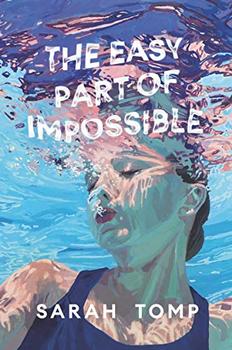Summary | Excerpt | Reviews | Beyond the book | Read-Alikes | Genres & Themes | Author Bio

The Emissary meets The Curious Incident of the Dog in the Nighttime in this poignant and triumphant story about how love, friendship, and persistence can change a life forever.
This story is, in short, about a monster meeting another monster.
One of the monsters is me.
Yunjae was born with a brain condition called Alexithymia that makes it hard for him to feel emotions like fear or anger. He does not have friends―the two almond-shaped neurons located deep in his brain have seen to that―but his devoted mother and grandmother aren't fazed by his condition. Their little home above his mother's used bookstore is decorated with colorful post-it notes that remind him when to smile, when to say "thank you," and when to laugh. Yunjae grows up content, even happy, with his small family in this quiet, peaceful space.
Then on Christmas Eve―Yunjae's sixteenth birthday―everything changes. A shocking act of random violence shatters his world, leaving him alone and on his own. Struggling to cope with his loss, Yunjae retreats into silent isolation, until troubled teenager Gon arrives at his school and begins to bully Yunjae.
Against all odds, tormentor and victim learn they have more in common than they realized. Gon is stumped by Yunjae's impassive calm, while Yunjae thinks if he gets to know the hotheaded Gon, he might learn how to experience true feelings. Drawn by curiosity, the two strike up a surprising friendship. As Yunjae begins to open his life to new people―including a girl at school―something slowly changes inside him. And when Gon suddenly finds his life in danger, it is Yunjae who will step outside of every comfort zone he has created to perhaps become a most unlikely hero.
With its confessional tone and short chapters, the novel is diary-like, showing a record of Yunjae's daily life after the attack and his attempts to understand more about his neurodivergent brain. It seems that it is precisely because Yunjae can't recognize emotions and has had to study them that he has such a profound understanding of the rather subjective nature of the language humans use to describe feelings. This slipperiness of language, of how people describe their worlds and the ways they experience them, is really at the heart of Almond, and is brought to light by this unexpected protagonist...continued
Full Review
(1007 words)
This review is available to non-members for a limited time. For full access,
become a member today.
(Reviewed by Kelly Hydrick).
 The term neurodiversity refers to the diversity of human brains and minds — the infinite variation in neurocognitive functioning within our species. Neurodiversity encompasses both neurotypical individuals whose neurocognitive functioning is considered by societal standards to be "normal," as well as neurodivergent individuals who experience cognitive, affectual and/or sensory processes that diverge from the typical. Although the term neurodiversity was originally coined by scientist Judy Singer, who is autistic, in the late 1990s and specifically used to describe autistic neurotypes, today it also includes ADHD, bipolar conditions, dyslexia, dyspraxia, OCD, schizophrenia, Tourette syndrome and other neurodevelopmental ...
The term neurodiversity refers to the diversity of human brains and minds — the infinite variation in neurocognitive functioning within our species. Neurodiversity encompasses both neurotypical individuals whose neurocognitive functioning is considered by societal standards to be "normal," as well as neurodivergent individuals who experience cognitive, affectual and/or sensory processes that diverge from the typical. Although the term neurodiversity was originally coined by scientist Judy Singer, who is autistic, in the late 1990s and specifically used to describe autistic neurotypes, today it also includes ADHD, bipolar conditions, dyslexia, dyspraxia, OCD, schizophrenia, Tourette syndrome and other neurodevelopmental ...
This "beyond the book" feature is available to non-members for a limited time. Join today for full access.

If you liked Almond, try these:

by Jeff Garvin
Published 2021
A quirky and heartfelt coming-of-age story about a teen girl with bipolar II who signs her failed magician father up to perform his legendary but failed illusion on live TV in order to make enough money to pay for the medications they need - from the author of Symptoms of Being Human. Perfect for fans of Adi Alsaid, David Arnold, and Arvin Ahmadi.

by Sarah Tomp
Published 2021
After an injury forces Ria off the diving team, an unexpected friendship with Cotton, a guy on the autism spectrum, helps her come to terms with the abusive relationship she's been in with her former coach.
Too often we enjoy the comfort of opinion without the discomfort of thought.
Click Here to find out who said this, as well as discovering other famous literary quotes!